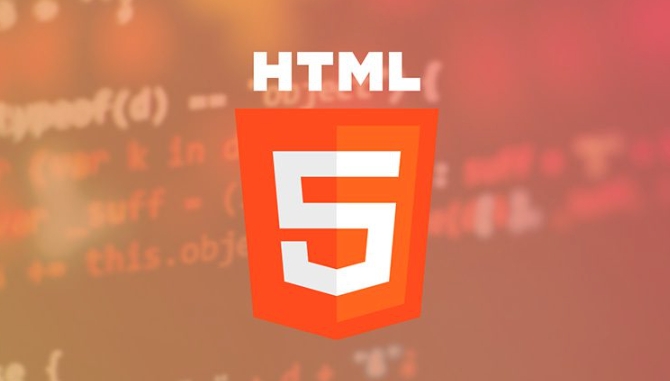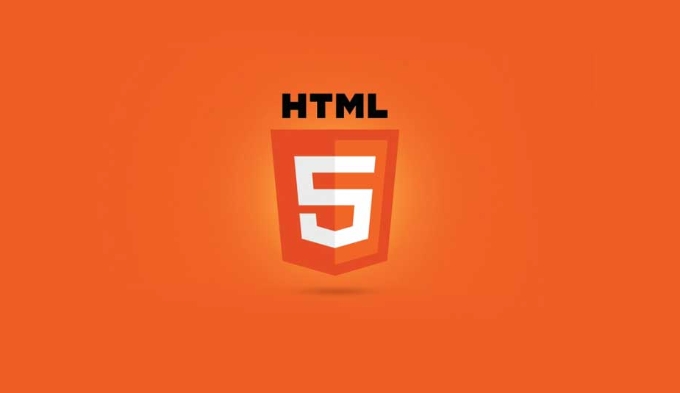Building navigation menus using HTML5's nav elements can improve semantic structure and accessibility. nav represents the main navigation area of ??the page, which is often used in conjunction with unordered lists to keep the structure clear. 1. The basic structure is nav wrapped ul, each li is a menu item; 2. The style is controlled through CSS, such as flex layout to achieve horizontal arrangement, media query adaptation and responsive design; 3. Precautions include avoiding abuse, adding aria attributes to optimize barrier-free experience, rationally handling nested menus, and paying attention to SEO effects.

Using HTML5's nav elements to build navigation menus is a practical and semantic approach in web development. It not only helps improve the readability of the code, but also enhances the barrier-free access experience of the page. The key is clear structure, reasonable labels, and controllable styles.

Why choose the nav element?
HTML5 introduces semantic elements like nav , mainly to enable developers to express page structure more intuitively. nav represents the main navigation area in the page, such as the top menu, sidebar link or jump link in the footer. Compared to the previous method of using multiple div to nest, nav is more concise and clear.

Search engines and screen readers also better recognize these content, thereby improving SEO and accessibility. Of course, it does not have any styles and needs to be combined with CSS to achieve visual effects.
How to correctly build navigation menus using nav?
In actual applications, nav and unordered list <ul></ul> are usually used together, which can not only maintain structure but also facilitate subsequent layout. The basic structure is as follows:

<nav>
<ul>
<li><a href="/">Home</a></li>
<li><a href="/about">About Us</a></li>
<li><a href="/services">Services</a></li>
<li><a href="/contact">Contact us</a></li>
</ul>
</nav>A few suggestions:
<ul><li> Use<ul> to wrap navigation items because they are essentially a set of related link items.<li> Each <li> corresponds to a navigation menu item.<li> Avoid placing too much irrelevant content in nav , such as search boxes, advertisements, etc., and keep its "navigation" responsibilities single.How to add style to the nav menu?
Although nav is a semantic tag, its style is completely dependent on CSS. You can control the layout by selecting the class name or directly selecting nav ul li . A common approach is to arrange the menu horizontally:
nav ul {
list-style: none;
padding: 0;
margin: 0;
display: flex;
}
nav li {
margin-right: 1em;
}If you want to do responsive design, you can switch to a vertical menu on the small screen or hide it as a hamburger menu in conjunction with media queries.
Also, don't forget to add hover effect and highlight the current page, which can improve the user experience. For example:
nav a:hover,
nav a.active {
color: #007BFF;
text-decoration: underline;
}Notes and FAQs
When using nav , there are several details that are easily overlooked:
nav . For example, minor links in the footer and jump links in the article do not necessarily require nav .
<li> Accessibility optimization : aria-label or aria-labelledby attribute can be added to help screen reader users understand the role of this area.
<li> Nested menu processing : If the navigation has a submenu, you can use a nested <ul></ul> structure and combine it with JavaScript control to expand and collapse.
<li> SEO Impact : While nav helps SEO, it is more important to be the order of links and the anchor text is clear and accurate.
Basically that's it. It is not complicated to use nav well, but you should pay attention to clear structure and clear semantics. Combined with the appropriate style and interaction, you can create a navigation menu that is both beautiful and practical.
The above is the detailed content of Structuring Navigation Menus with the HTML5 Nav Element. For more information, please follow other related articles on the PHP Chinese website!

Hot AI Tools

Undress AI Tool
Undress images for free

Undresser.AI Undress
AI-powered app for creating realistic nude photos

AI Clothes Remover
Online AI tool for removing clothes from photos.

Clothoff.io
AI clothes remover

Video Face Swap
Swap faces in any video effortlessly with our completely free AI face swap tool!

Hot Article

Hot Tools

Notepad++7.3.1
Easy-to-use and free code editor

SublimeText3 Chinese version
Chinese version, very easy to use

Zend Studio 13.0.1
Powerful PHP integrated development environment

Dreamweaver CS6
Visual web development tools

SublimeText3 Mac version
God-level code editing software (SublimeText3)

Hot Topics
 What is Microdata? HTML5 Explained
Jun 10, 2025 am 12:09 AM
What is Microdata? HTML5 Explained
Jun 10, 2025 am 12:09 AM
MicrodataenhancesSEOandcontentdisplayinsearchresultsbyembeddingstructureddataintoHTML.1)Useitemscope,itemtype,anditempropattributestoaddsemanticmeaning.2)ApplyMicrodatatokeycontentlikebooksorproductsforrichsnippets.3)BalanceusagetoavoidclutteringHTML
 Microdata in HTML5: The Key to Better Search Engine Ranking
Jun 12, 2025 am 10:22 AM
Microdata in HTML5: The Key to Better Search Engine Ranking
Jun 12, 2025 am 10:22 AM
MicrodatasignificantlyimprovesSEObyenhancingsearchengineunderstandingandrankingofwebpages.1)ItaddssemanticmeaningtoHTML,aidingbetterindexing.2)Itenablesrichsnippets,increasingclick-throughrates.3)UsecorrectSchema.orgvocabularyandkeepitupdated.4)Valid
 Audio and Video: HTML5 VS Youtube Embedding
Jun 19, 2025 am 12:51 AM
Audio and Video: HTML5 VS Youtube Embedding
Jun 19, 2025 am 12:51 AM
HTML5isbetterforcontrolandcustomization,whileYouTubeisbetterforeaseandperformance.1)HTML5allowsfortailoreduserexperiencesbutrequiresmanagingcodecsandcompatibility.2)YouTubeofferssimpleembeddingwithoptimizedperformancebutlimitscontroloverappearanceand
 Audio and Video : What about browser compatibility?
Jun 11, 2025 am 12:01 AM
Audio and Video : What about browser compatibility?
Jun 11, 2025 am 12:01 AM
Browser compatibility can ensure that audio and video content works properly in different browsers by using multiple formats and fallback strategies. 1. Use HTML5 audio and video tags and provide multiple format sources such as MP4 and OGG. 2. Consider automatic playback and mute strategies and follow the browser's policies. 3. Handle cross-domain resource sharing (CORS) issues. 4. Optimize performance and use adaptive bit rate streaming media technologies such as HLS.
 Audio and Video: can i record it?
Jun 14, 2025 am 12:15 AM
Audio and Video: can i record it?
Jun 14, 2025 am 12:15 AM
Yes,youcanrecordaudioandvideo.Here'show:1)Foraudio,useasoundcheckscripttofindthequietestspotandtestlevels.2)Forvideo,useOpenCVtomonitorbrightnessandadjustlighting.3)Torecordbothsimultaneously,usethreadinginPythonforsynchronization,oroptforuser-friend
 Adding Audio and Video to HTML: Best Practices and Examples
Jun 13, 2025 am 12:01 AM
Adding Audio and Video to HTML: Best Practices and Examples
Jun 13, 2025 am 12:01 AM
Use and elements to add audio and video to HTML. 1) Use elements to embed audio, make sure to include controls attributes and alternate text. 2) Use elements to embed video, set width and height attributes, and provide multiple video sources to ensure compatibility. 3) Add subtitles to improve accessibility. 4) Optimize performance through adaptive bit rate streaming and delayed loading. 5) Avoid automatic playback unless muted, ensuring user control and a clear interface.
 What is the purpose of the input type='range'?
Jun 23, 2025 am 12:17 AM
What is the purpose of the input type='range'?
Jun 23, 2025 am 12:17 AM
inputtype="range" is used to create a slider control, allowing the user to select a value from a predefined range. 1. It is mainly suitable for scenes where values ??need to be selected intuitively, such as adjusting volume, brightness or scoring systems; 2. The basic structure includes min, max and step attributes, which set the minimum value, maximum value and step size respectively; 3. This value can be obtained and used in real time through JavaScript to improve the interactive experience; 4. It is recommended to display the current value and pay attention to accessibility and browser compatibility issues when using it.
 HTML audio and video: Examples
Jun 19, 2025 am 12:54 AM
HTML audio and video: Examples
Jun 19, 2025 am 12:54 AM
Audio and video elements in HTML can improve the dynamics and user experience of web pages. 1. Embed audio files using elements and realize automatic and loop playback of background music through autoplay and loop properties. 2. Use elements to embed video files, set width and height and controls properties, and provide multiple formats to ensure browser compatibility.






